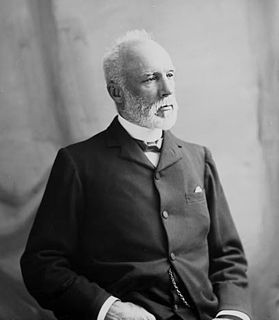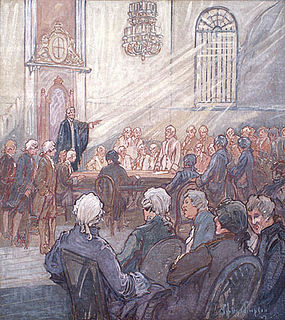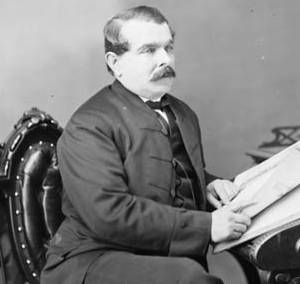| The Hon. Louis Panet | |
|---|---|
 | |
| Senator for La Salle, Quebec | |
| In office 1871–1874 | |
| Appointed by | John A. Macdonald |
| Preceded by | Édouard-Louis-Antoine-Charles Juchereau Duchesnay |
| Succeeded by | Charles-Eugène Panet |
| Member of the Legislative Council of Quebec for La Salle | |
| In office 1867–1884 | |
| Succeeded by | Praxède Larue |
| Personal details | |
| Born | March 19, 1794 Quebec City, Lower Canada |
| Died | May 15, 1884 (aged 90) Quebec City, Quebec |
| Political party | Conservative |
Louis Panet (March 19, 1794 – May 15, 1884) was a notary and political figure in Quebec. He sat for La Salle division in the Senate of Canada from 1871 to 1874. Panet also represented La Salle in the Legislative Council of Quebec from 1867 to 1884. [1]

Civil-law notaries, or Latin notaries, are agents of noncontentious private civil law who draft, take, and record instruments for private parties and are vested as public officers with the authentication power of the State. As opposed to most notaries public, their common-law counterparts, civil-law notaries are highly trained, licensed practitioners providing a range of regulated services, and whereas they hold a public office, they nonetheless operate usually—but not always—in private practice and are paid on a fee-for-service basis. They often receive the same education as attorneys at civil law but without qualifications in advocacy, procedural law, or the law of evidence, somewhat comparable to solicitor training in certain common-law countries.
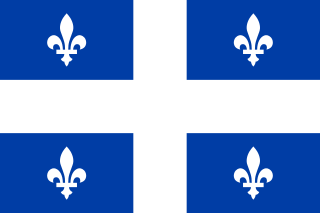
Quebec is one of the thirteen provinces and territories of Canada. It is bordered to the west by the province of Ontario and the bodies of water James Bay and Hudson Bay; to the north by Hudson Strait and Ungava Bay; to the east by the Gulf of Saint Lawrence and the province of Newfoundland and Labrador; and to the south by the province of New Brunswick and the U.S. states of Maine, New Hampshire, Vermont, and New York. It also shares maritime borders with Nunavut, Prince Edward Island, and Nova Scotia. Quebec is Canada's largest province by area and its second-largest administrative division; only the territory of Nunavut is larger. It is historically and politically considered to be part of Central Canada.

The Senate of Canada is the upper house of the Parliament of Canada, along with the House of Commons and the Monarch. The Senate is modelled after the British House of Lords and consists of 105 members appointed by the Governor General on the advice of the Prime Minister. Seats are assigned on a regional basis: four regions—defined as Ontario, Quebec, the Maritime provinces, and the Western provinces—each receive 24 seats, with the remaining portions of the country—Newfoundland and Labrador receiving 6 seats and the three northern territories each assigned the remaining one seat. Senators may serve until they reach the age of 75.
He was born in Quebec City, the son of seigneur Jean-Antoine Panet and Louise-Philippe Badelart, who was the daughter of Philippe-Louis-François Badelard. Panet qualified as a notary in 1819 and set up practice in Quebec City. He was president of the Saint-Jean-Baptiste Society in Quebec City. In 1820, he married Marie-Louise Oliva. Panet served as lieutenant-colonel in the 1st Battalion of the Canadian Grenadier Guards. He was a member of the Executive Council for Lower Canada from 1837 to 1841 and served in the Legislative Council of the Province of Canada from 1852 to 1867. He resigned his seat in the Senate in 1874. Panet died in Quebec City at the age of 90. [2]

Quebec City, officially Québec, is the capital city of the Canadian province of Quebec. The city had a population estimate of 531,902 in July 2016, and the metropolitan area had a population of 800,296 in July 2016, making it the second largest city in Quebec after Montreal, and the seventh largest metropolitan area and eleventh largest city in the country.
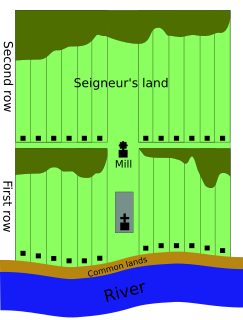
The manorial system of New France was the semi-feudal system of land tenure used in the North American French colonial empire.

Jean-Antoine Panet was a notary, lawyer, judge, seigneur and political figure in Lower Canada.
His brother Philippe served in the legislative assembly for Lower Canada and his brother Charles served in the legislative assembly for the Province of Canada. His nephew Charles-Eugène Panet also served in the Canadian senate.
Philippe Panet was a lawyer, judge and political figure in Lower Canada.
Charles Panet was a lawyer and political figure in Quebec. He represented Quebec County in the Legislative Assembly of the Province of Canada from 1858 to 1861.

Charles-Eugène Panet, Liberal, representing Quebec. He was appointed on 27 March 1874 by Alexander Mackenzie. He served until his resignation on 4 February 1875. He’s the first member of the family Panet-Raymond. The family name of her mother was Raymond and his father was Panet.

